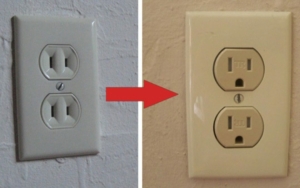What is an ungrounded electrical outlet?
An ungrounded electrical outlet is an outlet that lacks a ground wire, which is a safety feature designed to protect people and equipment from electrical shocks. In a typical electrical outlet, there are three wires: a hot wire, a neutral wire, and a ground wire. The hot wire carries the electrical current, the neutral wire provides a return path for the current, and the ground wire provides a safety path to ground in the event of a short circuit or other fault.
In an ungrounded outlet, there is no ground wire, which means that there is no safety path for electrical current to flow to ground in the event of a fault. This can be dangerous because if a fault occurs, the electrical current may flow through a person or equipment, potentially causing injury or damage. Ungrounded outlets are common in older buildings and homes that were built before modern electrical codes required the use of grounded outlets. If you suspect that you have ungrounded outlets in your home or workplace, it is recommended that you consult with a licensed electrician to determine the best course of action to ensure your safety.

Two-prong Ungrounded & Modern Grounded Electrical Outlet
